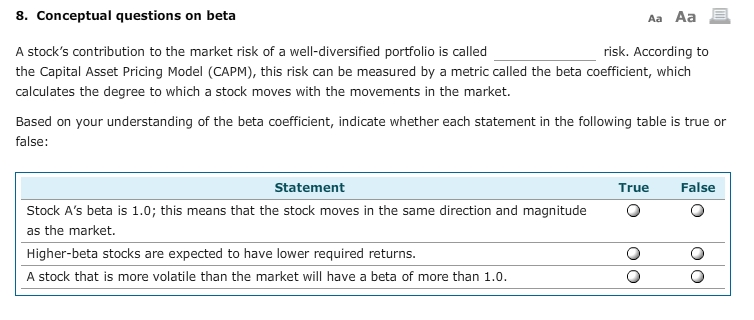Google, DOJ Return To Court: Battle Over Search Monopoly Heats Up

Table of Contents
The DOJ's Case Against Google's Search Dominance
The DOJ's antitrust lawsuit against Google centers on the accusation that Google has abused its dominant position in the search engine market to stifle competition and harm consumers. Their core argument revolves around Google’s alleged anti-competitive practices that have allowed them to maintain their stranglehold on search. The DOJ claims this "Google search monopoly" actively prevents fair competition, limiting consumer choice and innovation.
Specific anti-competitive practices cited by the DOJ include:
- Exclusive contracts with mobile phone manufacturers and carriers: The DOJ alleges that Google pays billions to these companies to make Google Search the default search engine on their devices, effectively locking out competitors.
- Payments to make Google the default search engine: These payments, according to the DOJ, create an unfair advantage, artificially inflating Google's market share and hindering the growth of rival search engines.
- Restrictions on pre-installation of competing search engines: The lawsuit claims Google prevents device manufacturers from easily installing alternative search engines, further reinforcing its dominance.
These actions, according to the DOJ, have severely limited competition and innovation in the search engine market, resulting in a less dynamic and consumer-friendly environment characterized by a significant lack of meaningful alternatives to the Google search monopoly. The potential for monopoly power to stifle innovation is a central theme of the lawsuit.
Google's Defense Strategies and Counterarguments
Google vehemently denies the accusations, arguing that its market dominance is a result of providing a superior product that consumers actively choose. Their defense strategy relies on several key points:
- Emphasis on the benefits of Google Search for consumers: Google highlights its continuous improvements to its search algorithms, its vast database, and its commitment to providing a free, high-quality service.
- Arguments against the claim of substantial market power: Google argues that the search market is dynamic and competitive, pointing to the existence of other search engines like Bing and DuckDuckGo. They argue that their market share, while large, doesn't represent a true monopoly.
- Highlighting the presence of competing search engines: Google acknowledges the existence of competitors but contends that their presence proves that the market isn't stifled and consumers retain choice.
Google's defense hinges on the argument that its success is due to merit and consumer preference, not anti-competitive practices. They aim to paint a picture of a vibrant competitive landscape, challenging the DOJ's characterization of a "Google search monopoly." The competitive landscape, Google asserts, is far more diverse than the DOJ suggests.
Potential Outcomes and Implications of the Court Case
The outcome of this trial could dramatically reshape the tech landscape. Several potential scenarios exist:
- A ruling in favor of the DOJ: This could lead to significant structural changes to Google's business, including potential fines, divestitures (selling off parts of the business), and changes to its contracts with device manufacturers.
- A dismissal of the case: This would be a victory for Google, solidifying its position in the market and potentially setting a precedent for future antitrust cases against tech giants.
- A settlement: Google and the DOJ might reach a settlement that involves changes to Google's business practices without a full trial.
Regardless of the outcome, the implications are far-reaching:
- Impact on Google's business practices and market position: The case could significantly alter Google's approach to securing partnerships and agreements with other companies.
- Effects on competition in the online search market: Increased competition could lead to greater innovation, improved search results, and more choices for consumers.
- Potential changes in regulation of tech monopolies: The case could influence future antitrust enforcement and regulatory frameworks for large tech companies, potentially leading to stricter regulations.
The Broader Context: The Future of Tech Regulation
The Google-DOJ case is not an isolated incident. It's part of a broader global movement towards increased scrutiny of large tech companies and their potential anti-competitive practices. Similar antitrust lawsuits have been filed against other tech giants, indicating a growing concern about the power and influence of these companies. This case will significantly influence the ongoing debate about the need for stronger antitrust enforcement and regulatory reform in the digital age, particularly concerning the control exerted by companies controlling aspects of the internet like a search engine. The future of tech regulation hangs in the balance.
Google, DOJ Return to Court: What's Next for Search Competition?
The ongoing court battle between Google and the DOJ over Google's alleged search monopoly is a critical moment for the future of online search and tech regulation. The DOJ's claims of anti-competitive behavior and Google's counterarguments highlight the complex issues surrounding market dominance and innovation in the digital age. The potential outcomes – from significant structural changes to a dismissal of the case – will have far-reaching implications for competition, consumer choice, and the broader regulatory landscape. Stay informed about the developments in this landmark case and explore resources on antitrust law and tech regulation to understand the implications for the future of Google search monopoly and the search market as a whole. The future of online search depends on the outcome.

Featured Posts
-
 Are Stretched Stock Market Valuations A Risk Bof A Weighs In
Apr 22, 2025
Are Stretched Stock Market Valuations A Risk Bof A Weighs In
Apr 22, 2025 -
 Harvard Faces 1 Billion Funding Cut Trump Administrations Ire
Apr 22, 2025
Harvard Faces 1 Billion Funding Cut Trump Administrations Ire
Apr 22, 2025 -
 Cassidy Hutchinsons January 6th Memoir What To Expect This Fall
Apr 22, 2025
Cassidy Hutchinsons January 6th Memoir What To Expect This Fall
Apr 22, 2025 -
 Ukraine War Fighting Resumes After Russias Easter Ceasefire
Apr 22, 2025
Ukraine War Fighting Resumes After Russias Easter Ceasefire
Apr 22, 2025 -
 The Shifting Sands Trumps Trade Wars And Americas Financial Future
Apr 22, 2025
The Shifting Sands Trumps Trade Wars And Americas Financial Future
Apr 22, 2025
Latest Posts
-
 Family Affair Dakota Johnsons Materialist Red Carpet Appearance
May 10, 2025
Family Affair Dakota Johnsons Materialist Red Carpet Appearance
May 10, 2025 -
 Dakota Johnsons Materialist Premiere Family Support
May 10, 2025
Dakota Johnsons Materialist Premiere Family Support
May 10, 2025 -
 Melanie Griffith And Siblings Support Dakota Johnson At Film Premiere
May 10, 2025
Melanie Griffith And Siblings Support Dakota Johnson At Film Premiere
May 10, 2025 -
 Family Support For Dakota Johnson At Materialist Los Angeles Premiere
May 10, 2025
Family Support For Dakota Johnson At Materialist Los Angeles Premiere
May 10, 2025 -
 Dakota Johnson Melanie Griffith And Siblings Attend Materialist Screening
May 10, 2025
Dakota Johnson Melanie Griffith And Siblings Attend Materialist Screening
May 10, 2025
